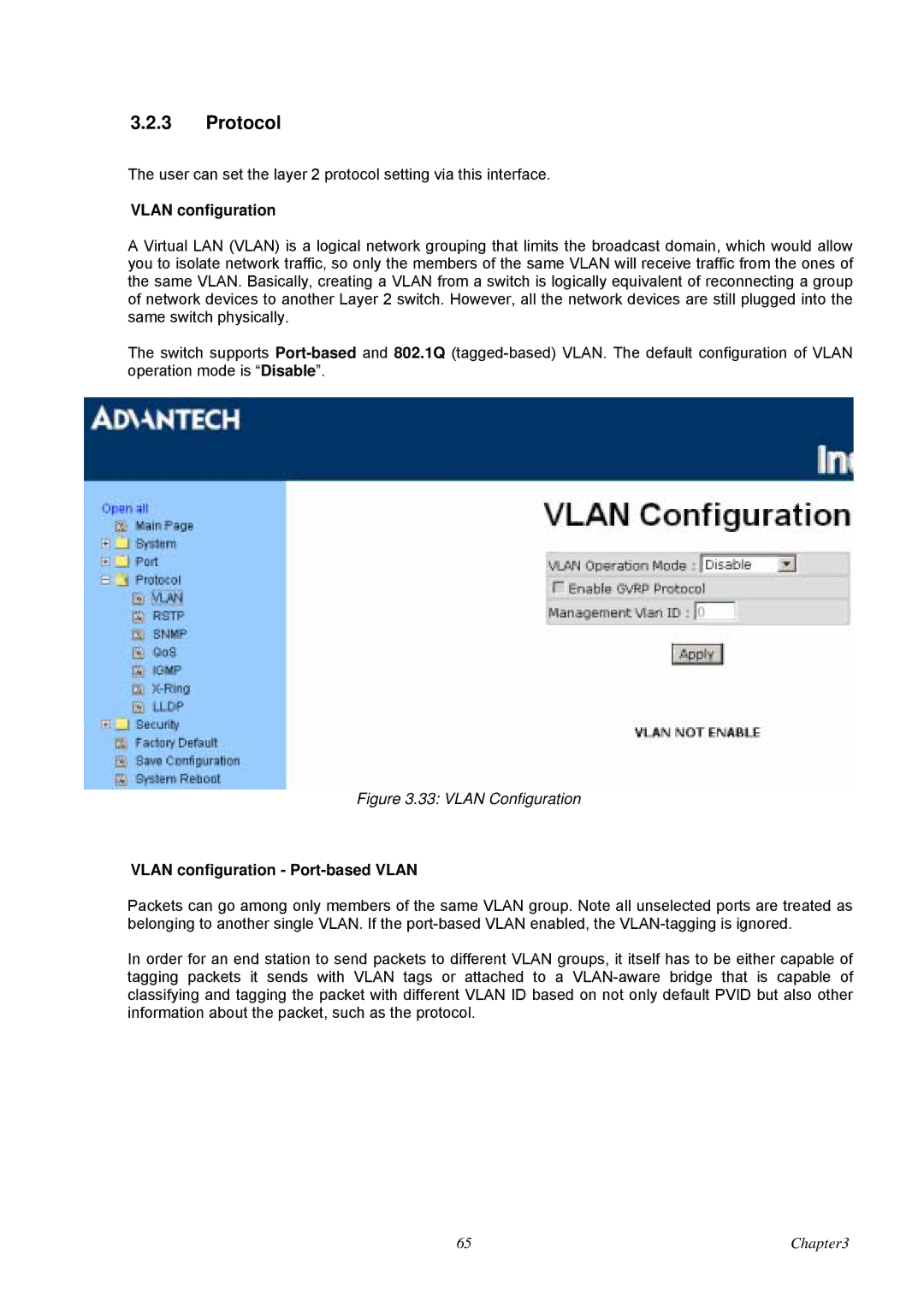
3.2.3Protocol
The user can set the layer 2 protocol setting via this interface.
VLAN configuration
A Virtual LAN (VLAN) is a logical network grouping that limits the broadcast domain, which would allow you to isolate network traffic, so only the members of the same VLAN will receive traffic from the ones of the same VLAN. Basically, creating a VLAN from a switch is logically equivalent of reconnecting a group of network devices to another Layer 2 switch. However, all the network devices are still plugged into the same switch physically.
The switch supports
Figure 3.33: VLAN Configuration
VLAN configuration - Port-based VLAN
Packets can go among only members of the same VLAN group. Note all unselected ports are treated as belonging to another single VLAN. If the
In order for an end station to send packets to different VLAN groups, it itself has to be either capable of tagging packets it sends with VLAN tags or attached to a
65 | Chapter3 |
